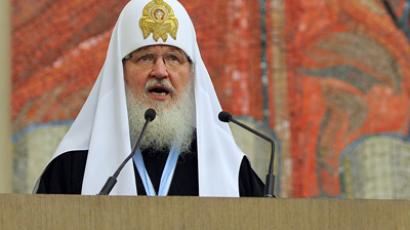Netherlands to abolish blasphemy law

Dutch parliament approves a motion to scrap law that made insulting God a crime. The move is welcomed by freedom of speech supporters and confirms anti-Islamists’ right to criticize religion.
The blasphemy law is no longer relevant in the 21st century, a majority of Dutch parties stated. This law has not been in use for more than half a century, Dutch MPs added.Liberal parties’ predominance in the current Dutch parliament has made the repeal of the 1930s law possible, with the same motion blocked by Christian political party’s allies back in 2008.The issue was brought to the attention of the parliament following the 2011 Geert Wilders case. Wilders, a far-right anti-Islam MP, was acquitted after facing trial on charges of inciting hatred and discriminations against Muslims. The judge ruled Wilders’ comparisons of Islam to fascism “acceptable,” allowing further criticism despite it insulting Muslims.The blasphemy law abolition was welcomed by freedom rights activists across the globe as a victory.However the decision was dubbed as a “painful loss of a moral anchor and a symptom of a spiritual crisis” by Dutch Christian SGP party, media reported.It is still illegal to insult police officers or the country’s monarch under the Dutch law.Many European countries still have blasphemy laws restricting freedom of expression, rights activists say. Others have replaced such laws with more general legislation criminalizing religious hatred. The UK has annulled its blasphemy law, replacing it with the Racial and Religious Hatred Act in 2007. The new law implies a prison term of up to seven years and an unlimited fine for the intention of stirring up religious hatred.Ireland stood out by introducing a new blasphemy law in 2010, instead of abolishing it. The recent Irish Defamation Act makes “publication or utterance of blasphemous matter” punishable by a fine of up to €25,000.Although such laws have not been invoked for decades in most of Europe, there remain some countries where charges on grounds of religious hatred have often been exercised.In Poland causing offense to religious feelings is considered a crime, even though there is no separate blasphemy law as such. Several cases of people charged with violating the Polish criminal code for religious offence have attracted media attention over the last decade.In 2008 a Finnish court sentenced the far right activist Seppo Lehto, to two years and fourth months in jail for defamation, inciting ethnic hatred and religious blasphemy against Islam.














